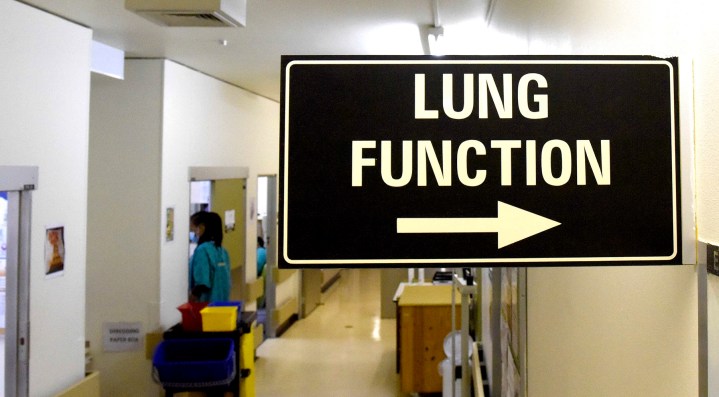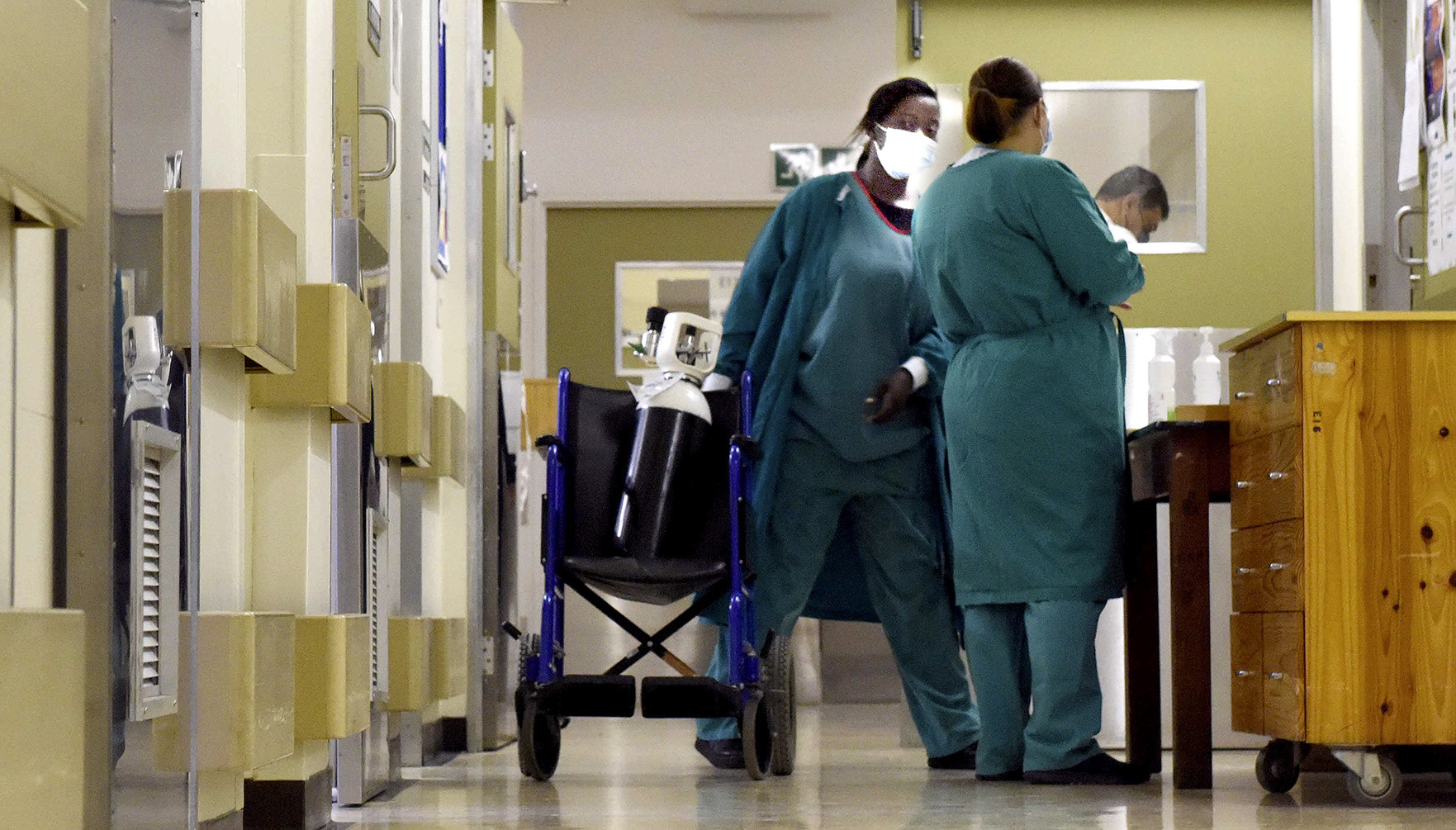SPOTLIGHT
A clearer picture of long Covid slowly emerging but how to alleviate the suffering still blurry

The first long Covid study conducted in South Africa found that the vast majority of patients had persistent or new symptoms a month after being discharged from hospital. However, much is still unknown about what exactly causes long Covid and how to alleviate the suffering, which is becoming an increasing health burden across the globe. Spotlight surveyed the latest evidence and asked local experts to place it in context.
The first long Covid study in South Africa found that 82% of patients still had persistent or new symptoms a month after their discharge from hospital. However, much is still unknown about what exactly causes this and how to alleviate the suffering, which is becoming an increasing health burden.
Dr Murray Dryden from the Division of Public Health Surveillance and Response at the National Institute for Communicable Diseases (NICD), who led the study, says irrespective of the disease severity, whether severe or asymptomatic, any patient who becomes infected with SARS-CoV-2 can develop long Covid.
“Initial estimates suggested that one in 10 people who are infected with SARS-CoV-2 are at risk for developing long Covid, but these were only rough estimates. There isn’t a lot of data for asymptomatic or non-hospitalised patients with long Covid internationally,” he says.
The study was published in a special public health surveillance bulletin of the NICD in early August.
It states that the high burden of persistent symptoms is concerning for South Africa due to the potential for placing an additional burden on an already overwhelmed healthcare system, a decline in work productivity and the resultant decline in production, and an increased need for economic support among those affected.
A total of 1,448 patients who were hospitalised in both the private and public sector between December 2020 and April 2021 took part in the study. It was found that the risk factors to develop long Covid are asthma, diabetes, hypertension and obesity; age, and being female. The most common long-lasting symptoms were shortness of breath, headaches, fatigue, and confusion or lack of concentration.
“Vaccines have not been shown to worsen or cause the symptoms associated with long Covid. Preliminary research has suggested that vaccination can prevent the development of long Covid and reduce symptoms in those who were vaccinated after developing it,” says Dryden.
‘A next health disaster?’
Professor Jonny Peter, Head of the Division of Allergology and Clinical Immunology at the University of Cape Town and Groote Schuur Hospital, says people who are admitted to hospital with severe Covid-19 usually have symptoms for at least four weeks.
“Covid-19 is a long infection for many people,” he says. “If you look at people two months after hospitalisation, about 80% will have some kind of ongoing symptom, such as fatigue and respiratory symptoms (shortness of breath, chest pains, and exhaustion). This relates to the lung damage which occurs in people and will depend on how severe the illness was.
“However, there is another group whose lingering symptoms are disproportionate to the severity of their disease,” says Peter. “These are some people who may have had a relatively mild-to-moderate SARS-CoV-2 infection, but then they experience various ongoing symptoms for months. An even smaller group has symptoms very similar to chronic fatigue syndrome.” A review article in Nature Methods gives a good sense of the broad range of symptoms.
“There is a huge burden of post-acute complications and then there is a smaller group, where people experience very prolonged symptoms even after six months. In these patients, SARS-CoV-2 has triggered a post-viral fatigue syndrome,” says Peter.
“It is important to distinguish between these different groups, even though all have been lumped together as long Covid. It may be that the complications people experience from between two weeks to three months, for those people who were admitted to hospital with severe illness, have different causes from people that have had mild illness but who develop debilitating long-term symptoms such as fatigue,” he says.
There are two main theories about persistent and long-term symptoms, according to Peter. The first is that there may be a reservoir of virus left somewhere in the body, where the immune system can’t detect it, even though the virus is undetectable with a test. A part of the virus is left causing damage, even though it can’t replicate and spread in the body anymore. The second is that there is some form of misdirected immune response, such as auto-antibodies. These drive ongoing inflammation, in either one organ, or it could be systemic.
“The impact of SARS-CoV-2 infection on people with HIV and tuberculosis has not nearly been as severe as expected, even though both are chronic inflammatory infections. In contrast, obesity, diabetes, and cardiovascular conditions are high-risk factors. The difference may lie in the nature of the chronic immune response between these two groups of conditions. We have no reason to believe that long Covid may be different in South Africa than elsewhere in the world,” he adds.
How many people in South Africa are suffering from long Covid is unclear. When reporting the data and mentioning that people have recovered from SARS-CoV-2, is not taking cognisance of the fact many have not actually recovered, says Peter. What we are not reporting is that many people have ongoing symptoms.
“It is a huge burden on the health system and in some way, it can even be a much longer, sustained one than the acute illness surges we experienced. We don’t really have good targeted treatments. It is really about treating ongoing symptoms, but once you have done it and the patient is still ill, it becomes difficult,” he says. Along similar lines, a recent ‘perspective’ article in the New England Journal of Medicine refers to long Covid as a next “health disaster”.
“The key is an integrated care package depending on the individual need of the patient. Once we get over these acute surges, we will align and move to this, and it is already happening with many health care workers starting smaller clinics focusing on this,” says Peter.

Groote Schuur’s Post-Covid-19 Lung Disease Clinic has been helping recovered Covid-19 patients with their lingering symptoms. (Photo: Nasief Manie/Spotlight)
The role of cytokines
Clive Gray, Professor of Immunology in the Division of Molecular Biology and Human Genetics at Stellenbosch University, says there are indications that a whole cluster of cytokines remain elevated in people with long Covid — something also referred to in a recent article in The Lancet.
Gray explains a cytokine is like a “hormone” in response to the immune system being on high alert. It is a communicator; it moves between cells and signals to cells to behave in a certain way. “It is like a hand-waving signal, saying: ‘I am over here!’ Or it releases a set of instructions to immune cells, but if there are too many released at the same time, the immune system goes into overdrive. Imagine all these hand signals waving around, causing chaos in the body. It is like instead of having a traffic official trying to control a point, you have all the passengers and drivers getting out of the vehicles and doing the same.”
This is what a cytokine storm is and the end result causes huge pathology in long Covid patients, such as scarring of lungs, sometimes organ, and neurological damage.
“Everything to do with Covid-19 pathology is immune-mediated,” he says. “We also know that SARS-CoV-2 infection can also precipitate auto-immunity, resulting in an auto-immune disease state. This is when you get an auto-reactive immune response that should not be there. It can affect many organs or a system, like blood clotting, or neuronal damage. The root of all of this is likely due to continued inflammation.
“An overactive immune system causes a huge amount of damage. Whether this will be permanent, we don’t know. It could well be [permanent] or it could take years to recover. An example, if your gut microbiome is disturbed, it can take up to five years to restore,” he says.
But even though we know about things like elevated cytokine levels, our understanding of what causes long Covid and how long Covid develops over time remains limited. An excellent overview of long Covid recently published in the British Medical Journal concluded that long Covid remains “enigmatic” and stressed the uncertainty over how new variants of SARS-CoV-2 may impact long Covid.
A year later
The Lancet study mentioned earlier assessed the detailed health outcomes at six and 12 months for 1,276 Covid-19 patients who had been discharged from a hospital in Wuhan, China between January and May 2020. As such, it represents some of the longest duration follow-up data yet available.
Though most symptoms had resolved by 12 months, around one-half of survivors still experienced at least one ongoing symptom (most commonly fatigue or muscle weakness), and one in three patients still experienced shortness of breath.
The Lancet editorial published at the same time states: “As the Covid-19 pandemic continues, the need to understand and respond to long Covid is increasingly pressing. Symptoms such as persistent fatigue, breathlessness, brain fog, and depression could debilitate many millions of people globally. Yet very little is known about the condition… With no proven treatments or even rehabilitation guidance, long Covid affects people’s ability to resume normal life and their capacity to work. The effect on society, from the increased healthcare burden and economic, and productivity losses, is substantial. Long Covid is a modern medical challenge of the first order.”
Meanwhile, the study which Dryden leads is continuing in South Africa in search of more answers.
“The number of people who are part of the study has increased to 2,610. We have a planned 12-month follow-up period with three-, six- and 12-month follow-up points where we will re-interview those enrolled,” says Dryden.
“Long Covid is a poorly understood phenomenon internationally, but it is anticipated that it will result in a large burden of disease for health care systems across the world. Considering the limited resources available in the public health sector and the large population in serves, it is important to plan for services to manage these patients appropriately,” he says.
“This would include research into what long Covid is and what causes it; how it affects different members of the population; how do we prevent it from happening; how can we treat it when it isn’t prevented; as well as provision of rehabilitation services and social support. The full scale of the burden is still very much unknown and due to the novelty of this phenomenon, the best way for it to be dealt with is still under discussion.” DM/MC
This article was produced by Spotlight – health journalism in the public interest.





















 Become an Insider
Become an Insider
Comments - Please login in order to comment.